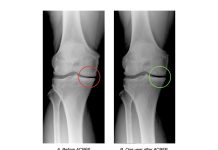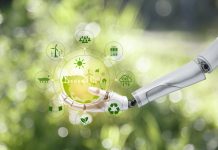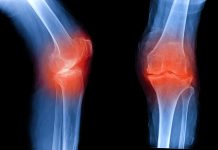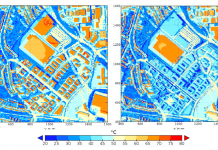Open Access Government produces compelling and informative news, publications, eBooks, and academic research articles for the public and private sector looking at health, diseases & conditions, workplace, research & innovation, digital transformation, government policy, environment, agriculture, energy, transport and more.
Returning to an active life with knee osteoarthritis
Here Open Access Government explore a testimonial from a patient who received a “wonder” therapy for his knee osteoarthritis (OA).
Driving down the worldwide IT project failure rate of 70%, and boosting success
One of Open Access Government’s current commentators, David P Jacobs of MaxVal Consultancy, is leading a strong attack on the disconcertingly expensive project failure rate of the last 40 years.
Focused research to enable safer and more effective use of opioids
Over the past year, the Michael G DeGroote Institute for Pain Research and Care has offered a series of articles in Open Access Government...
The full diversity of the RSE Role
To better understand the current state and problem of RSE, it would be useful to have a clearer understanding of what kind(s) of work are currently identified as such, whether they comprise a uniform kind of work or feature diverse subgroupings with differentiated practices involving perhaps, dominant and minority groups.
Northwestern VLSI Lab delivers AI empowered neural processing for intelligent human machine interface and...
Conventional wearable devices mostly rely on motion detection or image classifications to capture users’ activities. What is missing in many existing wearable devices is the decoding of neural signals generated by the human body.
Machine learning helps to improve climate services
Machine Learning methods have received significant attention in the past few years as a game changer for product development and Climate Services.
Online education: A new and fresh approach
The University of Birmingham is harnessing the power of online education to ensure students are job-ready and a step ahead of the competition.
Knee OA therapy offers pain relief to patients
A patient with knee osteoarthritis (OA) provides a testimonial for "wonder" therapy that has relieved painful symptoms.
Karl von Frisch and Konrad Lorenz: Two biologists in Nazi Germany
In 1973, three biologists shared the Nobel Prize for medicine: two Austrians who had conducted most of their research in Germany, Karl von Frisch and Konrad Lorenz, and the Dutchman Nikolaas Tinbergen.
Science speaks out! INTERACT bridge the gap between researchers and the public
Science is useless by itself if it doesn’t speak out. INTERACT is doing excellent science, but if it stays within the science community, its science is only of academic interest; communication across sectors is imperative.
Supporting better deployment of the PPN06/20 Social Value Model
The Impact Evaluation Standard framework for social value reporting helps address specific PPN06/20 challenges. Read our overview of how it supports contracting authorities.
Realise more value from your government or utilities operations
Is your business as optimised as it could be? Are your operations as streamlined and as sustainable as possible? It’s a serious question. One that’s well worth dedicating some thought to.
The EU Taxonomy Regulation as a lever to foster private sector adaptation to climate...
To ensure a smooth transition to a low-carbon financial and economic system and to prepare for climate-related risks, companies must develop and implement appropriate management measures. The EU Taxonomy Regulation is here to ensure this.
Redefining prosperity in east London through citizen science
Years of austerity and underfunded public services have left east Londoners with reduced opportunities and prospects, facing multiple interlinking challenges like racism, crime, and food poverty - what needs to change?
Data-driven prosperity: The shift from GDP to multidimensional wellbeing indices
The financial crisis highlighted the shortcomings of traditional measures of a country's prosperity; here we examine the shift from GDP to multidimensional wellbeing indices
The...
Profound scientific climate solutions in application on the ground
Provision of operational services to support climate change adaptation in municipal practice.
Climate information for cultural heritage resilience
Lola Kotova from Climate Service Center Germany (GERICS) unpacks climate information for strengthening the resilience of cultural heritage in times of anthropogenic climate change, presenting in this vein a fascinating case study for Germany.
Understanding the impact of drought on forests: Bridging science and practice
Due to the very long rotation times of trees 100 years old or more, the forest sector is being particularly affected by the changes brought about by climate change, especially by the impact of drought.
Tackling the ‘ticking time bomb’ of cardiovascular disease
The NHS Long Term Plan identifies cardiovascular disease (CVD) as a clinical priority and the single biggest opportunity to save lives.
From the empirical to the causal molecular: Understanding biology and genetics
From empiricist to causal molecular understanding of life and back: Historical reflections on 19th and 21st-century epistemologies in biology
The German American physiologist and experimental...





















